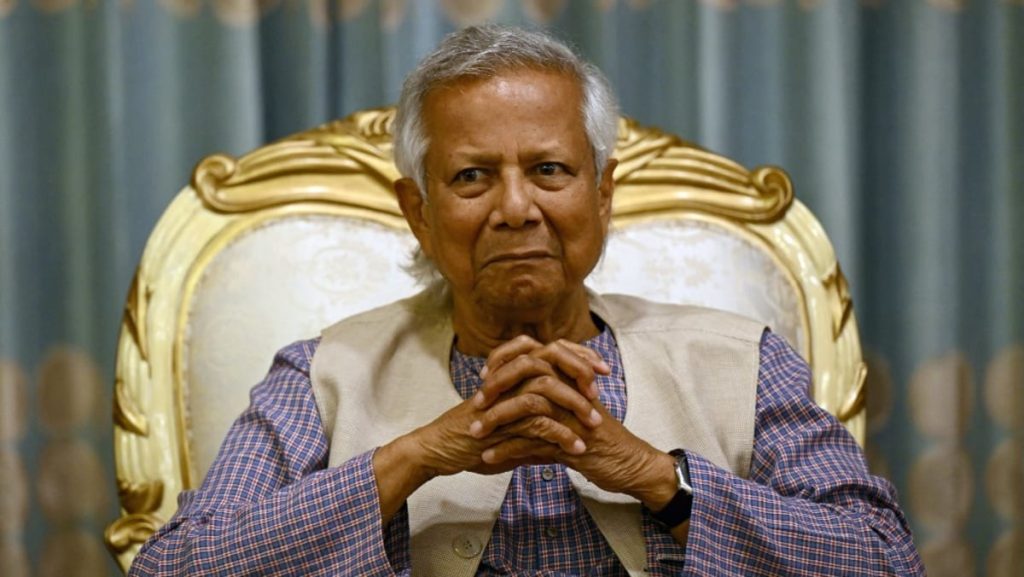Bangladesh’s interim leader, Nobel Peace Prize winner Muhammad Yunus, has refused to give a timeframe for elections following the ouster of his autocratic predecessor. He stated in an interview that reforms are needed before polls can be held. Yunus was appointed as the country’s “chief advisor” after a student-led uprising toppled former premier Sheikh Hasina in August. He is leading a temporary administration to address the “extremely tough” challenge of restoring democratic institutions.
Yunus emphasized the importance of reforms before conducting elections, stating that holding elections without implementing necessary changes would be a mistake. He made it clear that the interim government is not aiming to stay in power for a prolonged period. During Hasina’s 15-year rule, there were widespread human rights abuses, including mass detentions and extrajudicial killings of political opponents. More than 600 people were reportedly killed in the weeks leading up to her ouster, with the actual figure likely being higher.
Hasina’s administration was accused of politicizing courts and the civil service, as well as holding lopsided elections to consolidate power and weaken democratic checks. Yunus described the public administration system as completely broken down and stressed the need for a comprehensive overhaul to prevent a future return to autocracy. He emphasized that reforms are essential to prevent a repetition of the abuses that occurred under Hasina’s rule.
The interim government led by Yunus faces significant challenges in rebuilding democratic institutions and restoring public trust. The administration is focused on implementing reforms to ensure transparency, accountability, and fairness in future elections. Yunus acknowledged the difficult task ahead but expressed determination to address the flaws in the system and prevent a recurrence of past abuses.
Yunus’s leadership of the interim government is marked by his commitment to upholding democratic principles and ensuring the protection of human rights. He is working towards creating a more inclusive and democratic political environment in Bangladesh. Despite the challenges posed by the legacy of Hasina’s rule, Yunus remains optimistic about the possibility of positive change through reforms and a commitment to democratic values.
In conclusion, Bangladesh’s interim leader Muhammad Yunus is prioritizing reforms to strengthen democratic institutions before holding elections. He has inherited a system plagued by abuses and corruption under the previous administration and is working towards comprehensive overhaul to prevent a return to autocratic rule. Yunus’s commitment to upholding democratic principles and human rights is essential in rebuilding trust in the government and creating a more inclusive political environment in Bangladesh.


